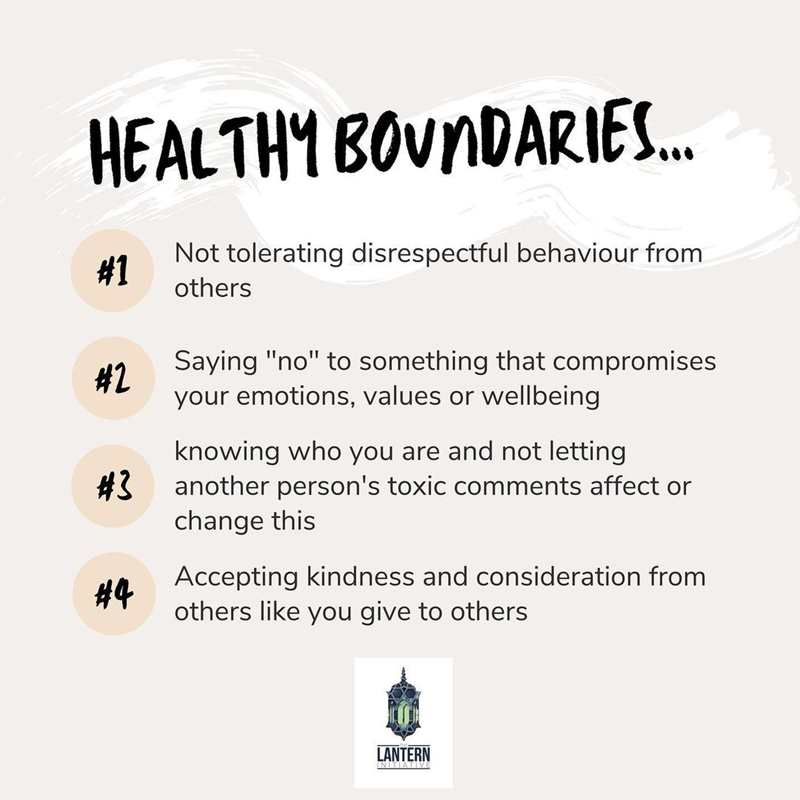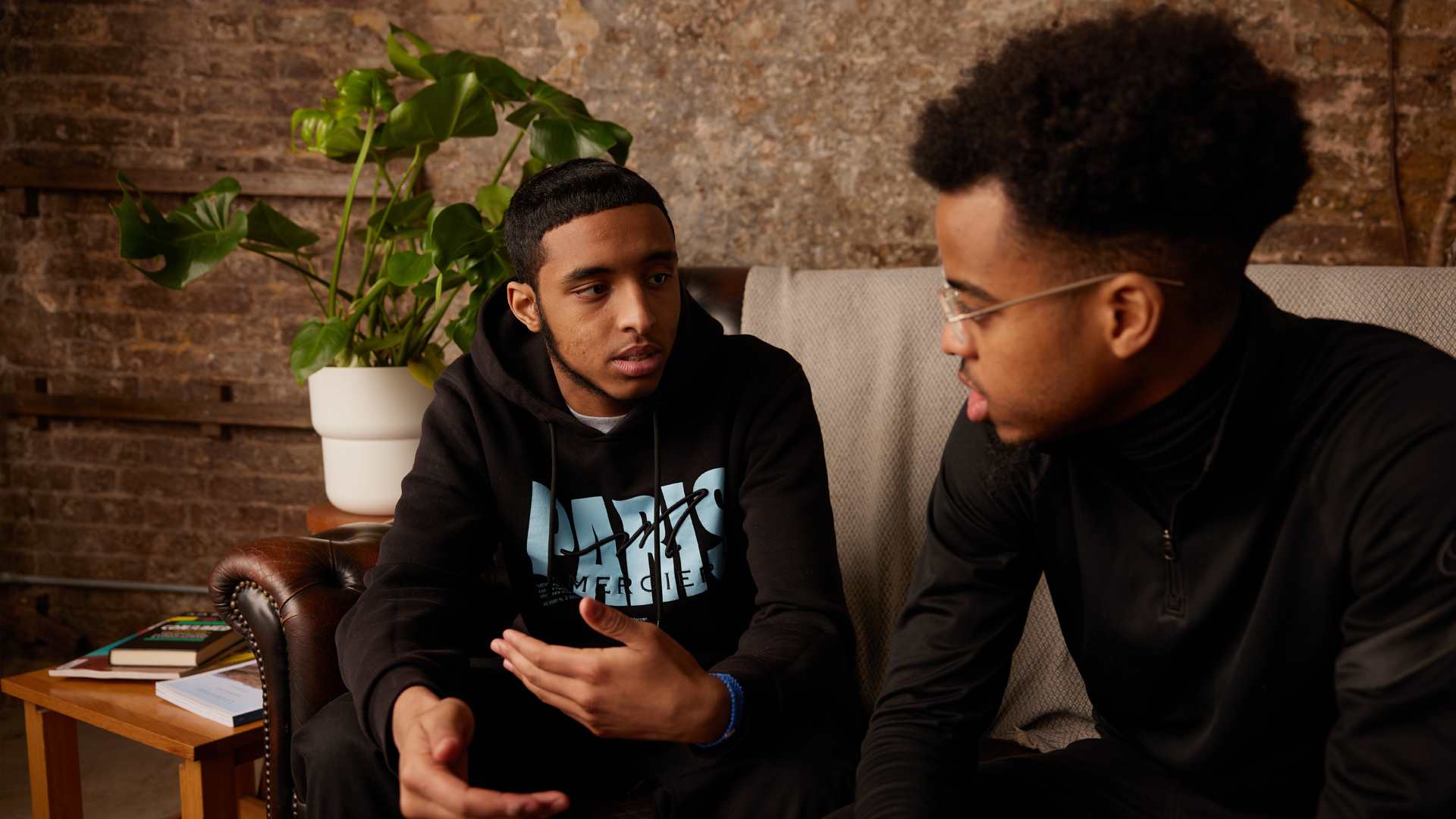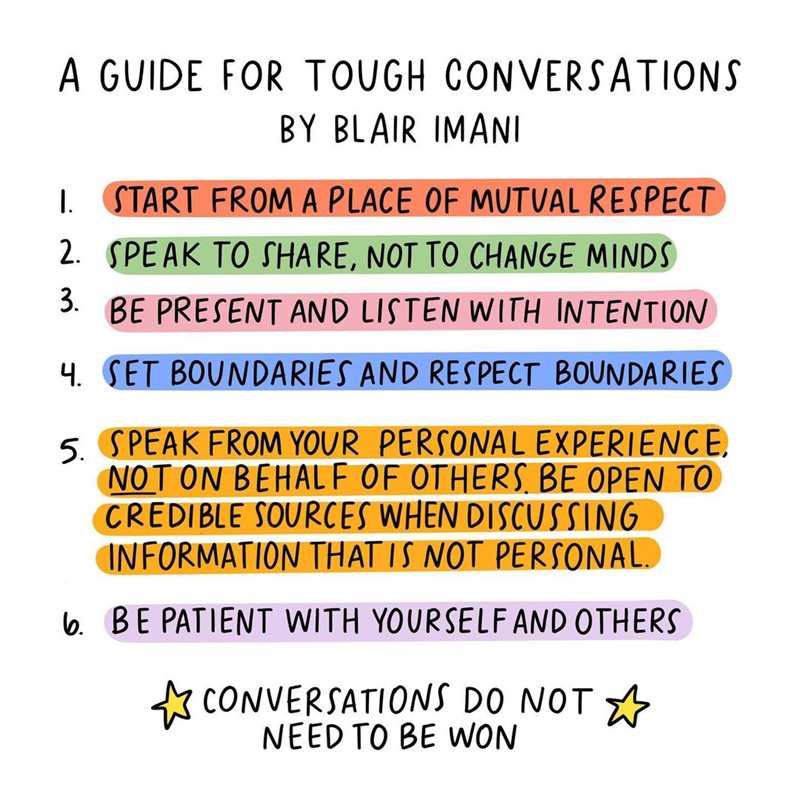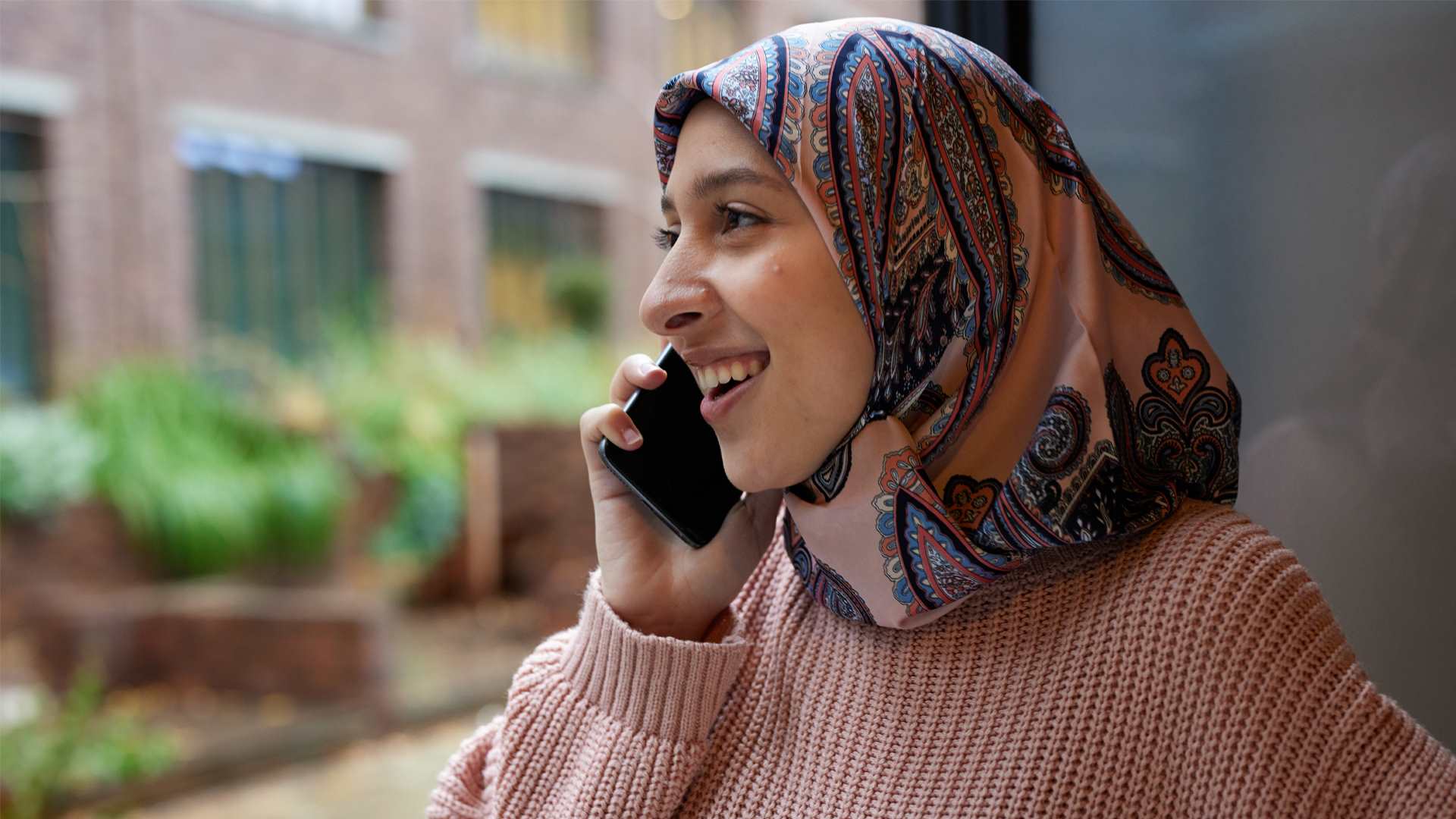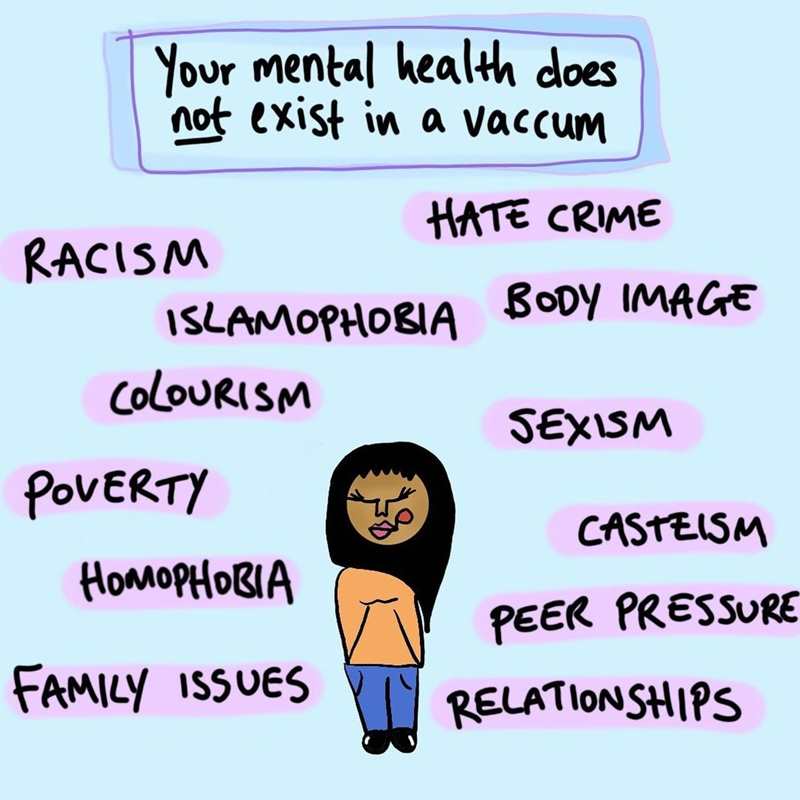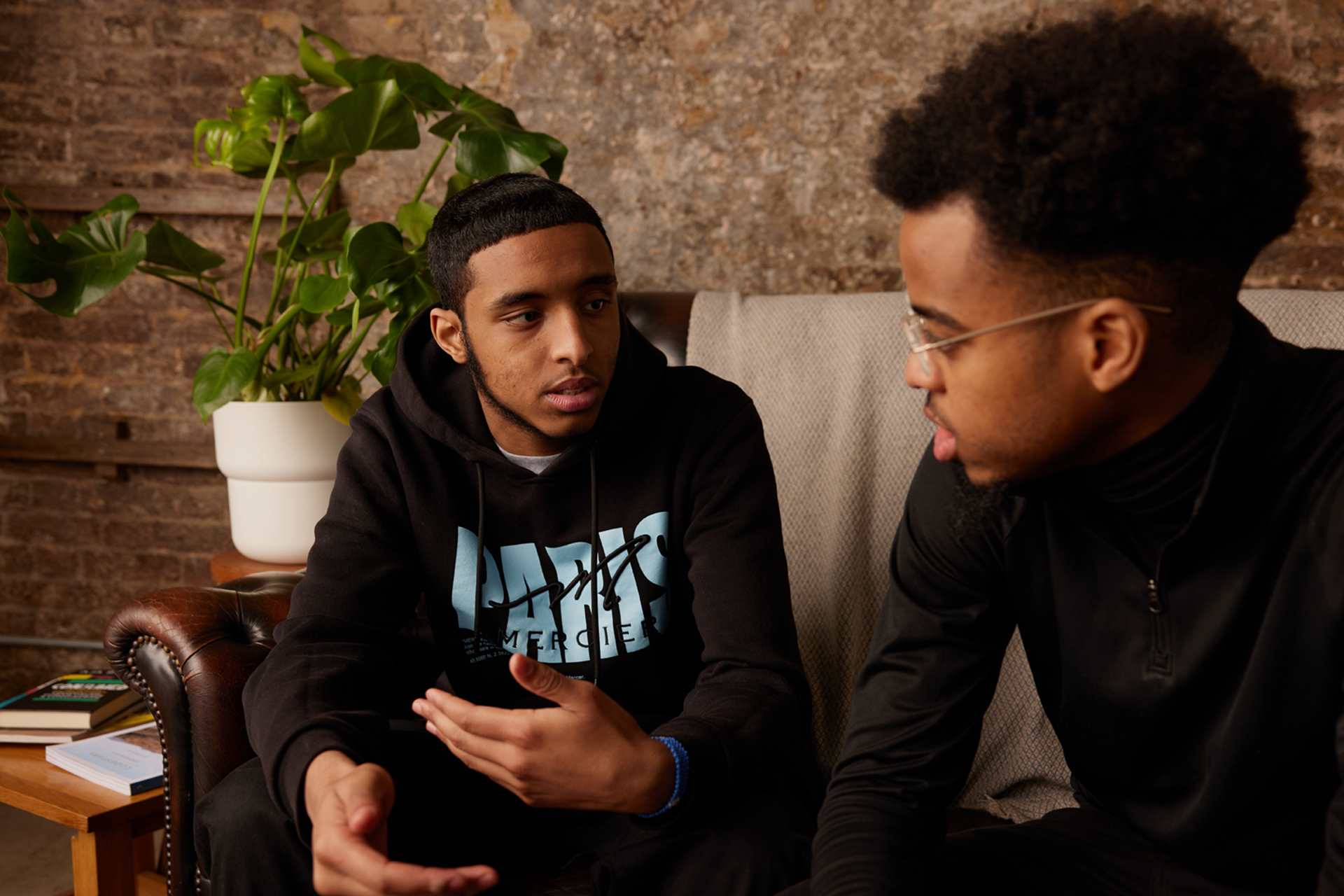Talking about how you feel is often the first step to feeling better. But opening up can feel hard when you’re worried about how the person or people will react. This can be even harder if the person we’re opening up to isn’t used to talking about mental health – particularly if they feel some kind of cultural stigma about it.
It can also feel difficult opening up about your mental health to someone who doesn’t share the same cultural or religious background as you, especially when you’re talking about things that relate to your culture or religion. You might be worried that they will misunderstand you, or judge you.
Working out who you’re most comfortable talking to is important. But even when you know who you want to speak to, you may still worry about their reaction - this is entirely normal.
If you're worried about opening up to someone who doesn't share the same cultural identity as you, take a look at our cultural identity and mental health guide for more tips and advice. Here you’ll find information about the relationship between cultural identity and mental health, how to navigate expectations and pressures, and how to get the support that’s right for you.




